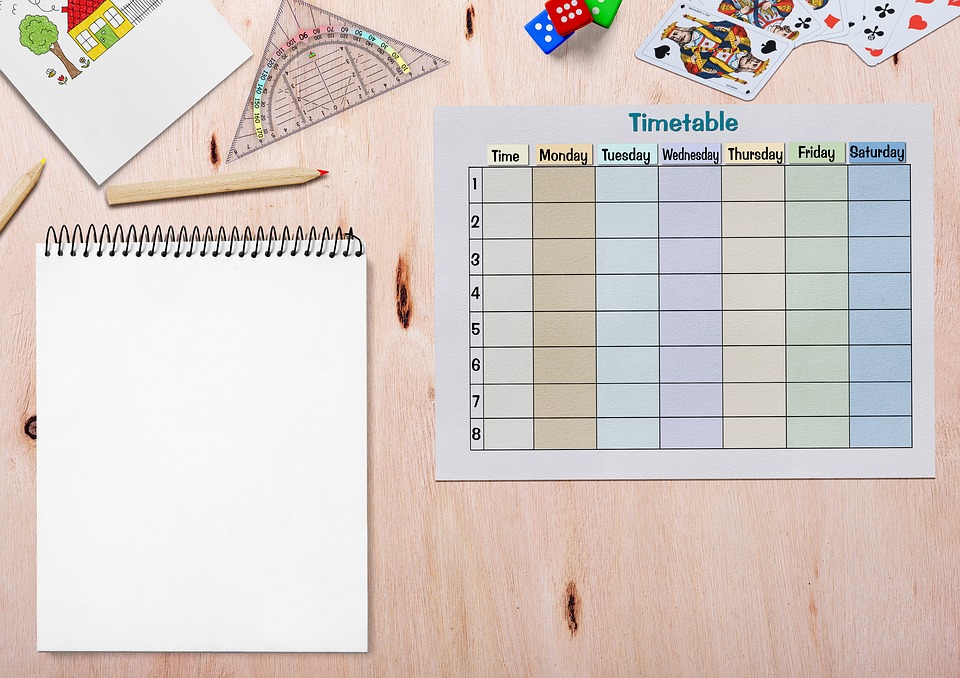The beginning of the school year means new backpacks, awkwardly posed pictures and so much paperwork. There are forms that need to be submitted, extra-curricular registration deadlines, and of course, opportunities to volunteer. As I prepare to volunteer for my eighth consecutive year as a room parent (putting that on paper makes me question some life choices), I would like to share tips and tricks of the job.
Why volunteer as a room parent?
There are many ways to get involved in a school. Serving as a room parent is not right for everyone. However, for those people with enough flexibility in their schedules and an interest in organizing, the opportunity to be a room parent can be a great fit. Not only does this position provide a valuable service to the classroom and the entire school community, it is also a benefit to the parent.
The room parent gets to spend time in the classroom. This means getting to know your child’s classmates and getting to see your child’s daily environment. Having spent so many years as a room parent, I feel like I know my kids’ friends/classmates, which means I know who they are talking about when they tell stories about school and overall I feel more connected to their lives.
The other huge benefit of being a room parent is creating a strong relationship with your child’s teacher. Spending time working with the teacher allows extra access to what is happening with your child in school. It also gives you some insight into how your child might experience being in that person’s class.
How should a room parent prepare for the year?
The first step in a successful room parent year is understanding the expectations and cycle of the year in your specific school. Hopefully the PTA has someone responsible for communicating with/orienting all of the room parents. If not, ask someone with experience as a room parent and/or your teacher to give you a timeline of room parent responsibilities. Most people think of room parents as party planners, but there could be an expectation that you do more such as facilitate class supply donations or school-wide initiatives. You also need to understand any school policies that affect your work. There will likely be big policies regarding food and activities in the classroom, but there may also be more specific policies related to things like appropriate Halloween costumes (for example, no weapons or masks as part of costumes).
The next step in room parent preparation is communicating with the teacher. Some teachers have been in the classroom for years and have specific ways they like to do things. Other teachers are just happy to have room parents so they don’t have to think about it. Ask the teacher about what they want/don’t want for each responsibility you have in the classroom. Teachers have seen a lot, so they are a wealth of knowledge about best practices. Don’t reinvent the wheel–ask what has worked best and what was a disaster. A new year means a new group of kids in that classroom, so there is no reason not to do the same Halloween games that were successful last year.
Being a room parent often means having the responsibility for all teacher gifts and treats. Teacher appreciation days and holiday/end of year gifts are meant to be a sincere thank you to someone who educates and supports our children all year. Therefore, we want those gifts to be meaningful and appreciated. A great way to make sure that is the case is by asking your teacher to fill out a survey to find out his/her preferences. Here are some questions you can ask :
- What is your birthday (month and day)?
- What is your favorite place to shop for classroom supplies?
- What is your favorite place to shop for yourself?
- What is your favorite treat?
- What is your favorite restaurant?
- What is your favorite coffee order?
- What classroom items do you need on a regular basis?
- Sweet or salty?
- Chocolate or vanilla?
- What is your favorite color?
- What do you like to do in your spare time?
- Too many…mugs? tote bags? candles?
The school year has begun…now what?
Hopefully you are lucky enough not to be a solo room parent and you have a partner in this endeavor. Take some time at the beginning of the year to figure out all of your responsibilities and then split them up. Who is going to communicate with the class? Who is collecting the class funds? Are you doing the parties together or each taking the lead on one? Who is shopping for teacher gifts? A good way to make these decisions is to talk about each of your strengths. If one person has more free time during the day, that person may be in charge of shopping. If someone is better at Excel, that may be the person who maintains the budget.
Speaking of budget….create one. Every school’s culture is different, but at my school we collect money from parents to pay for the things that happen in the classroom. Determine what you expect to spend on each responsibility (parties, teacher gifts, buying supplies for the classroom, etc) and then use that to create a budget for the year. If your school’s culture is to collect money from parents, the budget will allow you to determine how much you need to ask from each family. You should then ask for it all at the beginning of the year. You don’t want to keep going back and asking for money for each event. In elementary school, I have never asked for more than $25 per family for the year (remember that some people have more than one kid, which means more than one classroom financial obligation). I also make it very clear that if someone can’t contribute, their child will still be included in everything and their name will still be signed on every teacher gift.
Anything else?
I learn something new from this role every year, so here is a list of my favorite tips and tricks from the past seven (yep, still crazy) years:
- Just because you are the room parent does not mean that you are in this alone. There are very likely other parents in the class who want to help, but who don’t have the availability to be a room parent. So, ask for help! Create a signup genius for class parties that allow for the donation of both time and supplies. Some parents will want to come in to help set up/clean up/run a station. Other parents won’t be able to be there in person, but would love to help by donating snacks or party supplies.
- Last school year I had the lowest donation rate of my room parent career. There were parents who offered to give more money, but I was uncomfortable asking for another round of donations. So, my co-room parent and I went to our teacher questionnaire and noticed that the teacher loved gardening. We then created an Amazon wish list of gardening related items and sent it to the parents in the class. Buying something on the list was optional (again it was made clear that the gift would be from everyone whether or not they contributed) and there was a range of prices so if people did want to buy something, they could pick what they wanted to spend. We had everything sent to my house so I could create a gift basket. We ended up getting a ton of contributions (I think people like being able to pick a gift rather than just send money), but the beauty was, it would have worked even if we just got a few.
- Collecting money is not a glamorous part of the job, but to make it easier, offer a variety of ways for people to donate. Everyone has their favorite method of payment–Venmo, PayPal, Zelle, cash or check. You are much more likely to get a high participation rate if you have something for everyone. Make sure you keep a spreadsheet of who has donated, so you can send gentle reminders to people who have not yet done so (make sure you don’t single people out and at some point, for whatever reason, they are not going to donate, so you should leave them alone).
- If you are allowed to provide food in the classroom, get to know the allergies in your class. Ask the teacher and the parents for a list of allergies. If there are serious allergies, I recommend checking the party snack list with the parents of those children beforehand so you know that everyone will be safe. Just because a snack is listed as allergy friendly in the grocery store, does not mean that it is safe for all kids with allergies.
- Utilize other room parents. Get tips and ideas from experienced room parents. Talk to current room parents in other classrooms about what they are doing. There is no reason that you can’t do the same activity at a party and share supplies. If Oriental Trading is selling something in a pack of 100 and you only need 30, it would benefit everyone if you can go in on it with room parents from other classrooms.
- I saved my favorite tip for last –if you are ever having a party where kids are exchanging cards (Valentine’s Day or a holiday party), tell the kids/parents not to address the cards. It takes FOREVER to pass out cards if a child has to match the name on the card with the appropriate box or bag. However, if the card just says, “Happy Valentine’s Day Love, XYZ,” then those cards can be dropped quickly. And let’s be honest, the kids don’t care about the cards. They just want the attached temporary tattoo.
















Thank you for this! I just volunteered, for the first time, to be a room parent. I will be referring back to this article for sure!
I am so happy it is helpful! Please let me know if you have any questions or if I can be helpful in any way. Have a great year as room parent!!
Comments are closed.